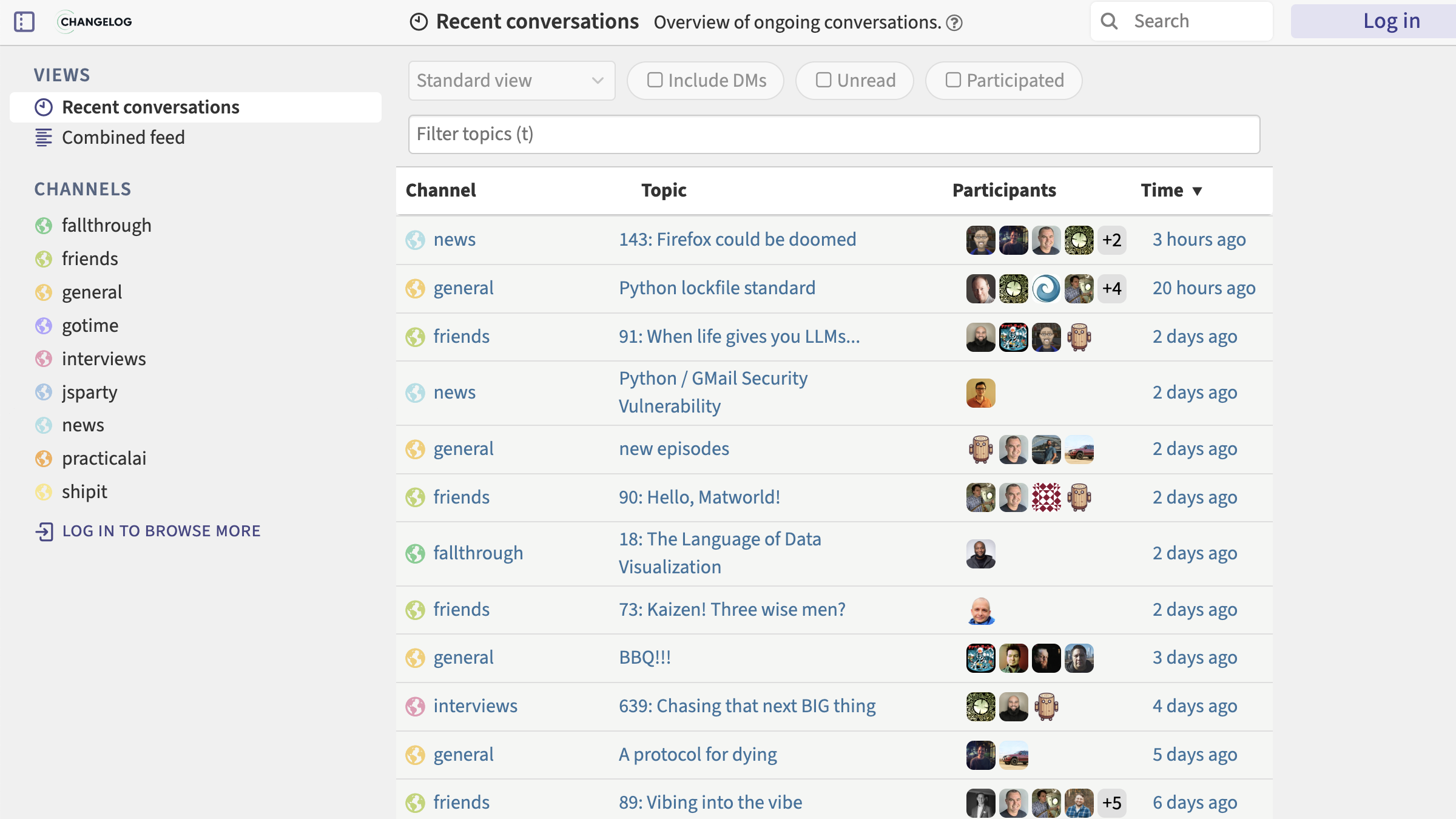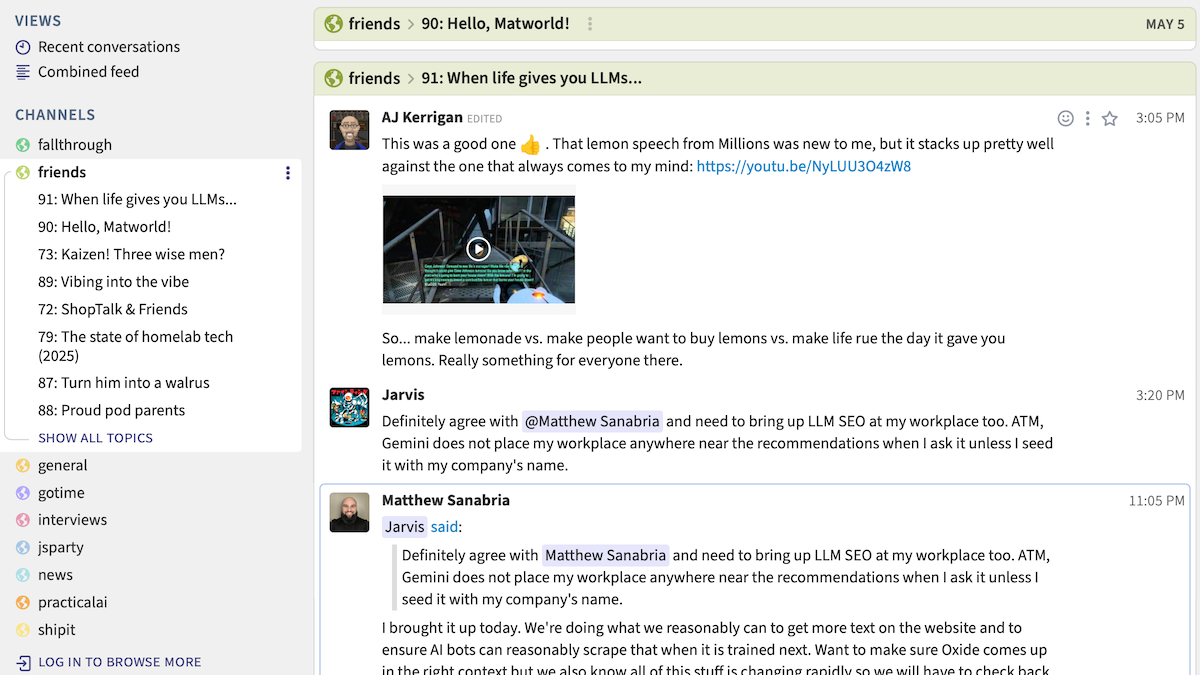Our Slack is dead. Long live Zulip!
open source threaded team chat FTW
It’s officially official. I just turned off our last Slack integration. We’re no longer announcing new episodes there. It’s been more than six months since we invited Zulip’s Alya Abbott on the pod and decided to kick the tires to see if Zulip could replace Slack for Changelog’s community. The answer has been a resounding YES! Here’s why.
Instead of listing all the reasons Slack wasn’t working great for us, I’ll keep it positive and list the reasons Zulip is working great. 💚
🤲 Zulip is open
Zulip is open in so many ways. It’s open source, it’s open to contribution, and it even hosts its own chat in the open, which is totally rad.
The open chat is powered by a very cool feature where you can opt in to public access on a channel-by-channel basis. We followed their lead. See our public conversations right here.

Zulip is also open to being self-hosted, which we aren’t doing, but it’s nice to have the option available if/when we change our mind!
🧵 Zulip is threaded
Zulip is chat, but it’s not just one long stream of messages. Each message belongs to a topic. That’s sounds like a small thing, but it makes a huge difference in practice. There’s something about having to stop and think about where your message belongs (and potentially creating a new topic) before posting, which produces higher quality conversations. It’s a nudge away from noise and toward signal.
Threads also fit nicely into our community because most conversation is in response to something discussed on an episode. We use the Zulip API to auto-create a new topic for each episode, which doubles as an announcement of fresh content.

Additionally, not everyone listens to a podcast episode at the same time. In Slack, it was impossible to listen to an older episode, then go see what the community had to say about it. With Zulip, you just dig up the associated topic and have at it. You can even reboot an old conversation if you like!
🙌 Zulip is community
We wanted to pay for Slack for years, but their pricing model made it clear that it’s not designed for communities like ours. The Zulip team, on the other hand, is focused on investing in community and mentorship. Toward that end, they sponsor Zulip Cloud Standard hosting for open source projects, research groups, education, non-profits and other communities.
They were even kind enough to sponsor our Changelog community, which we truly appreciate!
🎭 Zulip is a mixed bag
The late, great Jim Weirich used to say that you don’t really know a technology until you’ve used it in anger. We’ll, we’ve been using Zulip long enough now to have experienced both its pros and its cons, its beauty marks and its warts, its virtues and its sins.
Here’s a list of other things I like/dislike about Zulip, that you may find helpful data points when evaluating it:
- Like: The REST API is easy to hack against
- Dislike: The URLs are super ugly (example)
- Like: Plain ol’ Markdown for message formatting
- Dislike: The iOS app design is mid (the new one as well?)
- Like: There’s so many keyboard shortcuts
- Dislike: Emoji support is basic
👀 See you in Zulip
Only a fraction of our old Slack community moved with us into Zulip, yet the conversations we’re having now are so much better it’s almost laughable. Join us! It’s a totally free and fun place to hang out.
Discussion
Sign in or Join to comment or subscribe